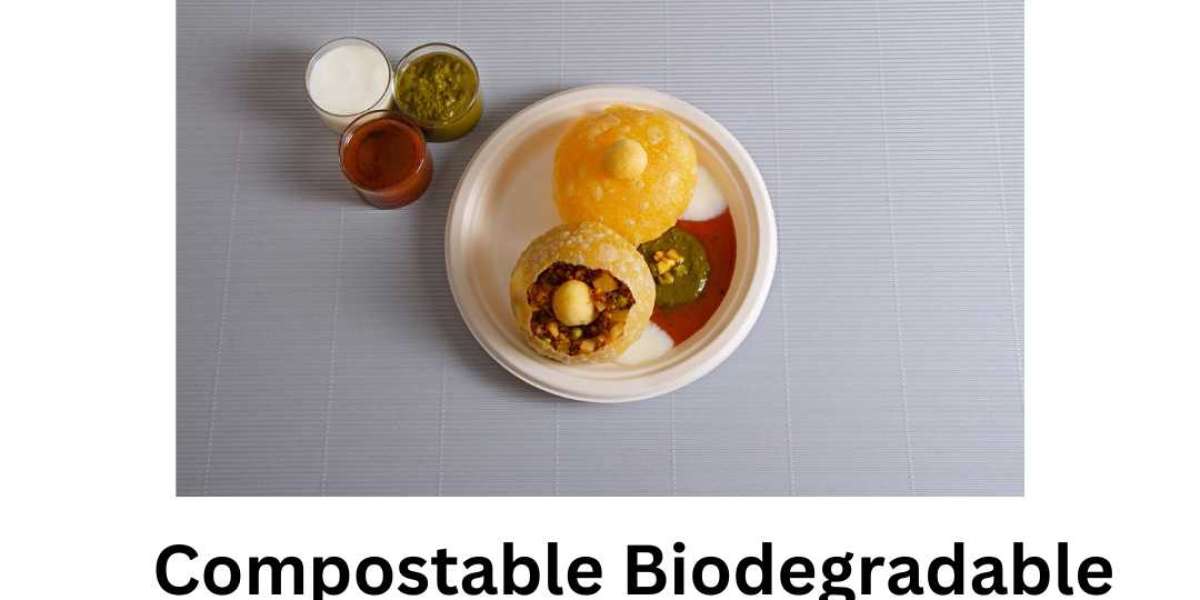As the global community becomes increasingly aware of environmental issues, industries are being pushed to rethink their practices, particularly in the realm of packaging. The food industry, known for its heavy reliance on single-use plastics, is now witnessing a revolution through the adoption of compostable biodegradable products. These innovative materials are not only eco-friendly but also practical, making them ideal for takeout and packaging solutions. This blog explores how compostable biodegradable products are transforming the food industry and paving the way for a more sustainable future.
The Problem with Traditional Packaging
The food industry has long depended on plastic packaging due to its durability, cost-effectiveness, and convenience. However, plastic's environmental impact is devastating. It takes hundreds of years to decompose, contributes significantly to landfill waste, and pollutes oceans, harming marine life. This unsustainable cycle has prompted the urgent need for alternative solutions.
Enter Compostable Biodegradable Products
Compostable biodegradable products offer a promising solution to the plastic problem. These materials are designed to break down naturally and return to the environment without leaving harmful residues. Unlike traditional plastics, which can persist in the environment for centuries, compostable products decompose within months under the right conditions.
What Makes a Product Compostable and Biodegradable?
To be classified as compostable and biodegradable, products must meet specific criteria:
Biodegradability: The product must be able to break down into natural elementsthrough the action of microorganisms.
Compostability: The product should decompose in a composting environment, turning into nutrient-rich compost that can enhance soil health.
Revolutionizing Takeout with Compostable Packaging
Takeout food has become a significant part of modern life, especially with the rise of food delivery services. The shift to compostable biodegradable packaging in this sector is not only reducing plastic waste but also appealing to eco-conscious consumers.
Compostable Food Containers
Compostable food containers made from materials like bagasse (sugarcane fiber), cornstarch, and bamboo are becoming popular. These containers are sturdy, heat-resistant, and suitable for both hot and cold foods, making them perfect for takeout meals.
Eco-Friendly Utensils and Straws
Cutlery and straws made from compostable materials such as PLA (polylactic acid) and plant fibers are replacing their plastic counterparts. These products offer the same functionality without the environmental guilt.
Compostable Cups and Lids
For beverages, compostable cups and lids provide an excellent alternative to plastic. Made from materials like cornstarch and paper lined with bio-coatings, these cups are fully compostable and biodegradable.
Benefits for the Food Industry
The adoption of compostable biodegradable products in the food industry brings numerous benefits:
Reduced Environmental Impact
Switching to compostable packaging significantly lowers the environmental footprint of food businesses. These products decompose quickly, reducing landfill waste and pollution.
Enhanced Brand Image
Consumers are increasingly choosing businesses that prioritize sustainability. By adopting eco-friendly packaging, food companies can enhance their brand image and attract a loyal customer base.
Regulatory Compliance
Governments worldwide are implementing stricter regulations on single-use plastics. Adopting compostable biodegradable products ensures compliance with these regulations, avoiding potential fines and penalties.
Challenges and Solutions
While the transition to compostable biodegradable products is promising, it comes with challenges:
Cost
Compostable materials can be more expensive than traditional plastics. However, as demand increases and production scales up, prices are expected to decrease. Additionally, the long-term environmental and regulatory benefits often outweigh the initial costs.
Composting Infrastructure
Effective composting requires proper facilities. Not all regions have the infrastructure to handle compostable waste. Advocating for and investing in composting facilities is crucial for maximizing the benefits of these products.
The Future of Food Packaging
The future of food packaging lies in sustainable solutions. Compostable biodegradable products are leading the way, offering a practical and eco-friendly alternative to traditional plastics. As technology advances and more businesses adopt these products, the food industry can significantly reduce its environmental impact and contribute to a healthier planet.
Conclusion
The adoption of compostable biodegradable products in the food industry marks a significant step towards sustainability. These innovative materials are revolutionizing takeout and packaging by providing practical, eco-friendly alternatives to plastic. By embracing compostable products, the food industry can reduce its environmental footprint, comply with regulations, and appeal to eco-conscious consumers. The shift to sustainable packaging is not just a trend but a necessary evolution for the future of our planet.







